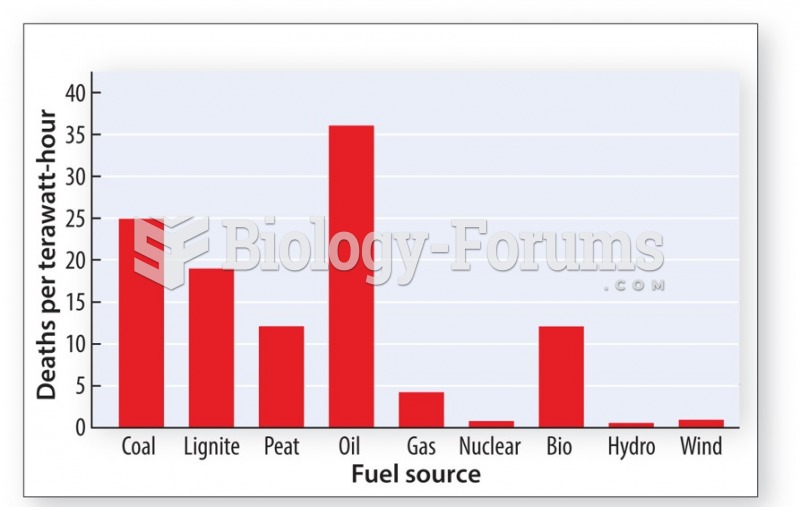|
|
|
About 600,000 particles of skin are shed every hour by each human. If you live to age 70 years, you have shed 105 pounds of dead skin.
To maintain good kidney function, you should drink at least 3 quarts of water daily. Water dilutes urine and helps prevent concentrations of salts and minerals that can lead to kidney stone formation. Chronic dehydration is a major contributor to the development of kidney stones.
Despite claims by manufacturers, the supplement known as Ginkgo biloba was shown in a study of more than 3,000 participants to be ineffective in reducing development of dementia and Alzheimer’s disease in older people.
Thyroid conditions may make getting pregnant impossible.
Amphetamine poisoning can cause intravascular coagulation, circulatory collapse, rhabdomyolysis, ischemic colitis, acute psychosis, hyperthermia, respiratory distress syndrome, and pericarditis.
 The Power and Control Wheels of Abusive Relationships When one person in a relationship repeatedly ...
The Power and Control Wheels of Abusive Relationships When one person in a relationship repeatedly ...
 This is what was found when removing an air filter from a vehicle that had a lack-of-power concern. ...
This is what was found when removing an air filter from a vehicle that had a lack-of-power concern. ...





